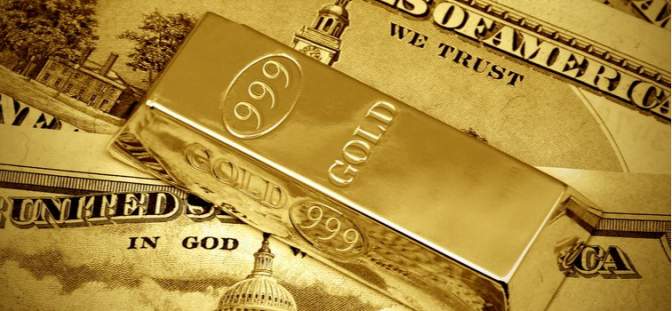Hyperinflation For Dummies: Why Are We Experiencing Increased Prices & What To Do About It?
Hyperinflation For Dummies: Why Are We Experiencing Increased Prices & What To Do About It?
by Mike C. Goodwin | Contributing Writer | Eternal Affairs Media
A trip to the grocery store, gas station, pharmacy, or any other retail outlet may be producing an abnormal amount of swearing and increased blood pressure. This is because of an increase in prices across the board. So why, you may ask, have prices increased so rapidly in such a short amount of time?
Inflation. Well, inflation and a few other complications.
First off, consumer goods are increasingly shipped in from abroad. This reliance on imported products leads to a lengthening of the supply chain. The supply chain is the time and distance goods must travel from raw materials, to production, to the consumer. As we are in a pandemic, this of course means that these supply chains are strained. This leads to increased demand, which translates to higher prices.
This alone would not normally be too noticeable were it not for an added increase in inflation. Inflation occurs when the money supply increases by an abnormal amount. Therefore, you will hear rather talkative elderly people talk about how a dime used to buy a dollar’s worth. They are not wrong, as surprising as that may be. This is what is known as a depreciation. Simply put, the dollar loses its buying power. This process is normally slow and noticeable only when comparing generational economies of a nation. Unless, of course, something unpleasant happens.
When a pandemic occurs, not only do the supply chains become overburdened, but governments also decide, for better or worse, to act. These actions range from shutting down the private sector economy that funds the government to printing vast amounts of currency to pay the citizenry. While mass payments may seem to stave off an impending economic crisis, it will lead to inflation’s brother with a drinking problem: Hyperinflation.
Hyperinflation is simply inflation that spends way too much time in the gym, has curious back acne, empty syringes nearby, and mood swings. Unlike inflation, hyperinflation is immediately noticeable. This is simply because there are far too many dollars chasing too few goods. Sort of like what happens when supply chains are stretched and the printing presses are firing out a rain forest of dollar bills a minute (I know dollars are not actually paper, but the metaphor requires a little voluntary ignorance here.) When hyperinflation is taken to the extreme, one gets Germany during the Weimar Republic, Zimbabwe in the last decade or Venezuela today. This led to historic photos of wheelbarrows full of cash being used to buy a loaf of bread or being used kindling because it was worth more as fuel than as currency. As a bonus, zoo animals were stolen and eaten in some instances in Venezuela. One may wonder how things can get so bad, other than lions being tasty. Well, that stems from the value of currency itself, or more importantly, the lack thereof.
We exist mainly in an economy dominated by what is known as fiat currency. This means that the value of the currency is largely based on the faith in the government that issues it. Whereas before 1971, when President Richard Nixon decoupled the US dollar from the gold standard, a dollar was backed by physical precious metals. This theoretically meant that paper currency could be exchanged for gold or silver at the holder’s request. Coinage was also made of gold, silver, or copper usually, where today it is mainly alloys with little to no intrinsic value. Again, the purpose of fiat currency is that the faith in the issuer is the value, not the currency itself.
Now, the reason for this transition away from commodity currency (gold standard) depends on whom you ask. For some, the economies of the world simply became too large to be able to maintain an amount of gold and silver on hand to back up the notes in circulation. Others believe it was a conspiracy hatched by those in power to control the money supply. Both are in fact correct, just maybe without the evil nefarious purpose of world domination. Maybe.
The Federal Reserve Act itself was established and signed into law by President Woodrow Wilson on December 23, 1913. This was done to centralize the monetary system of the US during a fiscal crisis. While not technically part of the government, for all intents and purposes, it at least functions as an arm of it.
President Franklin Delano Roosevelt took steps during his tenure to transition from commodity currency to fiat. The Gold Reserve Act of 1934, passed to stabilize the economy during the Great Depression transferred all gold reserves from the Fed to the US treasury. This meant that gold and gold certificates were no longer currency, but a commodity. Citizens themselves were forbidden from “hoarding” gold. They were required to sell their privately held reserves to the government at face value, not the intrinsic value of the gold itself. All this devalued the dollar to head off deflation (inflation’s slightly damaged cousin) that would have depressed wages. The theory behind this move was to increase the money supply in both domestic and international markets which would allow stability and availability. This was predicated on the notion that inflation and deflation are two ends of a spectrum that economies must balance in order to be stable.
President Richard Nixon finalized the transition to fiat currency by ending the convertibility of US dollars to gold. This was said to be done to address a looming run on gold and domestic inflation. What it accomplished was ending the gold standard, meaning the government could now print money without anything to back it up.
A main feature of fiat currency is that now a government can seemingly conjure money out of the ether, with no worry about from where it comes. As we have witnessed during recessions, terms like “quantitative easing,” “economic stimulus packages,” and others become commonplace. The theory behind these is that the economic growth, or at least activity, will offset the devaluation of the currency printed. Again, it is a balance. A balance that can be upset by the combination of election promises, massive spending programs, increased entitlement spending, ongoing military conflict, and a very suspicious bout of coughing from an undisclosed nation that in no way rhymes with “Dina.”
When the private sector is artificially slowed by government action, it is akin to a train slamming on the brakes. It makes a lot of noise but is largely inconsequential, at first. Then the cars behind it begin to slam into each other and a derailment is incoming. A derailment in this case is the position we find ourselves in today.
While the government pumped obscene amounts of currency into the economy, there was no economic activity to offset the inflation. Workers were paid to stay home, leading to low labor participation. Low participation meant that goods were not produced and those that were had difficulty making way to markets. This led to the abovementioned equation of too many dollars chasing too few goods. This meant inflation. But was it hyperinflation?
Not at first. It could be argued that the cliff had not been driven off quite yet. Unfortunately, political leaders had decided that bribing the electorate was never a bad idea. This led to massive spending bills being passed along with government interference free market on all levels. Which some believe is part of the point.
Economic theory can be viewed on a basic spectrum. On one side, the disciples of Friedrich Hayek and the Austrian School of Economics operate under the belief that free markets and open trade lead to the most desirable outcome of an economy. To try to boil it down further; let the supply and demand motivation guide what must be done, with little or no government participation other than enforcing laws and upholding the rights of those involved. Needless to say (yet I am about to for some reason,) these economists would argue against our current path of government bailouts and stimulus.
The other side of the spectrum is comprised of adherents of the London School of Economics, influenced by John Maynard Keynes. Keynesian Economics, as it is known, relies heavily on the government playing a leading role in the economy. Through this lens, it not only makes sense for the government to print money during a crisis, but also whenever massive spending projects are desired. This is how you can have pundits go from saying there is no inflation, to that inflation is overblown, to finally saying that inflation can be a good thing.
To give them the benefit of the doubt, their theory is that while prices increase, so do wages. So, while you will pay more for goods, you will have more money with which to do it. In the meantime, vital infrastructure, social spending, and all manner of programs can be expanded. The problem occurs when the price increases outpace the wages. Which is happening now.
This is why inflation is referred to as a “hidden tax.” Government gets money without actually taking it from the citizenry. There is no noticeable raise in a tax rate to upset voters. Unfortunately, as the buying power of currency decreases, the money those voters still possess purchases less.
So, what can be done by the average citizen to hedge against inflation or hyperinflation? Again, there are several options.
Look around the real estate market and you might notice that prices are increasing for properties all around. This is not a coincidence. Large corporations and the rich are buying properties well above fair market value. This is because despite memories of the housing bubble of a 2008, real estate is still a promising investment. Especially if one can be patient. While prices can seemingly crater, these are short term losses, usually recuperated in time. For this reason, real estate is the choice of those who can afford it.
For the technological savvy, cryptocurrency is a strong option. Not tied to any nation’s spending, cryptocurrencies like Bitcoin and Ethereum increase in value while the currency they are compared to decreases. For many, cryptocurrencies are not only irresistible investments, but also political or social statements as they are independent of government control.
Stocks, bonds, and other traditional investments may provide relief for some, though they are tied into the economy as much as currency is. Still, many have a strong record of accomplishment and as with real estate, a patient investor will not only recuperate any losses in the long term, but they will also increase their wealth when the storm passes.
Finally, one can always go back to the beginning: Commodities. Gold, silver, copper, and all other manner of commodities are purchased on the market every day. They range from physical gold like coins and bullion but also so-called “paper gold,” which are certificates that are promissory notes of precious metals.
If able, a diverse portfolio of investments can do much to alleviate any negative effects of inflation or a bad economy as a whole. One of the abovementioned investment strategies may be helpful, but more is always better (in this case, not in the case of stab wounds.) So, while we are certainly not out of the woods, a person can take steps to buffer themselves from any upcoming catastrophe. The average citizen can do very little to stop politicians from seemingly doing all in their power to lead us to economic collapse, but they can prepare their own financial future for demanding times.
None of this is to say that an average person is unable to affect large-scale change either. While taking small scale steps to ensure your economic stability, remember you are also a voter. If you feel uncertainty about the course of the nation, it is your responsibility to research spending policy as well as your local congressional representative’s standings.
Failing that, well, investing in canned foods and shotgun shells might be a worthwhile investment along with some sort of distillery to make fuel. Then you will be off to a new happy future in the wasteland. At least until the cannibals come for you, of course. Which they will. They always do.













